Shadow Game
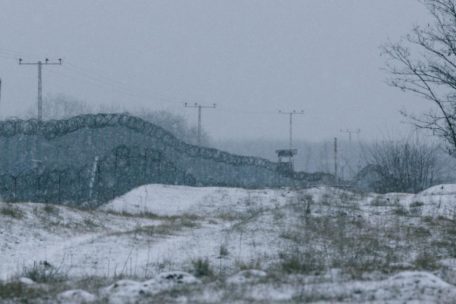
„Shadow Game“ is a documentary that shows us the dread-filled journey across Europe’s borders through the eyes of a teenage refugee. It reveals the stripped-down reality of the dark consequences that refugees, especially minors, face following the decision to escape their war-torn homelands. By calling this escape a „game“, they bring their youth with them in the attempt to keep themselves motivated and forcibly try to forget their life-or-death situation. If you finish the game and cross the border, you win; if you don’t, you try again until you make it.
The directors Eefje Blankevoort and Els van Driel show us the journey of ten unaccompanied young boys who must face the dangers of illegally crossing Balkan’s borders. By constructing the documentary using the boys’ footage as well as the clips from the team’s professional camera, the viewer has a more intimate look into the lives of the escapees. We are also shown the personalities and thoughts of all the main characters, which lends a human connection despite never meeting any of the teenagers in person.
From Mo, the 17-year-old from Iran who has been stuck in the same country for two years, to Mustafa from Irak, who has endured physically and mentally traumatizing events with police at the borders, all the way to Faiz from Sudan, who is now trying to leave Italy to go into France reaching the last levels of the game, we see a variety of different situations in which teenagers all around the world face every day in the desperate attempt to better their lives.
The contrast achieved from showing raw footage straight from the boys’ phones right next to the camera footage brings forth the different perspectives in which refugees can be seen, as simple human beings who vlog about their lives, but also as subjects of war to which many are desensitized. This wonderfully made contrast triggers a range of different emotions from the viewers throughout the movie.
Heart-wrenching and heart-warming at once, Shadow Game manages to make the usually neutral and fact-based genre of documentaries worth watching. Overall, there’s nothing to critique: the perfect execution and flawless delivery of the story make the hour and a half spent watching worthwhile. (Mjellma Shkupolli)
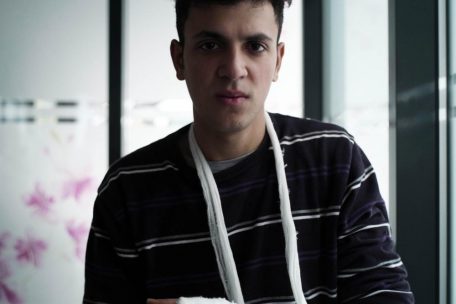
Shadow Game (2)
„Shadow Game“ is a documentary that was first released in March 2021. In „Shadow Game“, the public follows minor refugees on their journey through Europe. Trying to pass the borders, the refugees started to call it the „game“: a game of survival or death. If they cross the borders successfully, they will have won the game. If however the police catches them or they fail, they’ll have lost it.
There are different kinds of game like the train game, where they jump on a train and try to secretly pass through the borders or the walking game, where they walk sometimes over mountains or through rivers, trying to cross borders.
There wasn’t just one protagonist in the documentary but they showed a handful of minors and followed them on their journey. On places where the Netherlandish camera team couldn’t film, they asked the refugees to film for them. Directed was the documentary by Eefje Blankevoort and Els van Driel.
The documentary was eye-opening to me, since the media doesn’t portray the journey of a refugee the way „Shadow Game“ did. As a minor myself, I constantly compared my life to theirs and realized how unfair it is. Since I think that this 90 minutes long documentary is a masterpiece, I wasn’t surprised to hear that it won the Youth Jury Award for the LuxFilmFest. The documentary is definitely a recommendation to everyone. (Lisa Lippert)
Shadow Game (3)
„Shadow Game“ ist ein Dokumentarfilm, der von den holländischen Regisseurinnen Eefje Blankevoort und Els van Driel realisiert wurde. Der 90 Minuten lange Film wurde am 27. Mai 2021 veröffentlicht und hat den „Golden Calf for Best Long Documentary“ des niederländischen Filmfestivals gewonnen.
Die Dokumentation folgt mehreren jugendlichen Flüchtlingen aus verschiedenen Ländern, die ihren Weg nach Europa machen. Der Film fokussiert sich auf die tragische Reise der Jugendlichen, die verzweifelt versuchen, die Grenzen zu überqueren. Die Teenager müssen tagelang zu Fuß durch zum Beispiel verschneite Berge wandern, um einen Versuch zu wagen, ins nächste Land zu kommen, bei denen sie öfters auf aggressive Grenzpolizisten treffen. Diese Versuche werden von den Jugendlichen „Games“ genannt, daher auch der Name des Films. Das Werk wurde in einem Zeitraum von drei Jahren gefilmt, unter anderem mit den Handys der Teenagers selber.
Vom ersten Augenblick an hat mich der Film gefesselt. Besonders die verschiedenen Perspektiven haben viel Leben in den Film gebracht. Das Schicksal der Jugendlichen hat mich sehr berührt und vor allem das Ende fand ich sehr emotional.
Insgesamt hat mir „Shadow Game“ sehr gut gefallen. Ich finde es wichtig, dass der Film die Realität der Schicksale, die Flüchtlinge durchstehen, zeigt und auch nichts verheimlicht. Besonders gut finde ich auch die ganze Kampagne, die hinter der Doku steckt. Es wurde eine ganze Webseite (https://shadowgame.eu/en/homepage/) aufgebaut und auch eine Petition zum Schutz der minderjährigen Flüchtlingen gestartet. Der Film ist ein absolutes Muss! (Emma Nilles)
Force of Habit
„Force of Habit“ ist ein Drama, welches von sieben Regisseuren zusammengestellt wurde und bereits Preise auf Festivals gewann wie auf dem Durban Filmfestival 2020 in den Kategorien „Best Feature Film“ sowie „Best Editing“. Hauptprotagonisten sind unter anderem Seidi Haarla, Pinke Sanaksenaho und Julia Lappalainen.
Der Film spielt in Finnland, ist zum ersten Mal Ende September 2019 erschienen und zeigt sieben Kurzfilme von sechs Frauen sowie einem Mann und deren Alltag. Jede Kurzgeschichte greift das Thema sexuelle Belästigung auf diverse Weise auf.
Von Fremden, die eine Schülerin im Bus belästigen, bis zu einer Frau, die auf einer Party zugibt, von einem Mitarbeiter belästigt geworden zu sein – jede Situation ist anders gestaltet, alle sind jedoch packend und wichtig.
Vom ersten Augenblick an war ich interessiert, da das Thema von Anfang an gut umgesetzt wurde. Besonders gefallen hat mit, dass es eine große Vielfalt an Geschichten gab, sie jedoch nicht zu kompliziert waren und man sich leicht zurechtfand. Der Film besteht nämlich aus sieben Kurzfilmen und dauert insgesamt 75 Minuten.
Weniger gut hingegen war, wie sich manche Szenen zu sehr in die Länge gezogen haben. Das Ende des Films überraschte mich jedoch sehr, da man eigentlich vorahnen konnte, was passieren wird, im letzten Moment dennoch komplett über Bord geworfen wird.
Insgesamt hat mir „Force of Habit“ sehr gut gefallen. Vor allem die Aktualität des Themas, sexuelle Belästigung im Alltag, wurde gut umgesetzt. Persönlich kann ich den Film nur weiterempfehlen, da er (leider) einen guten Einblick in den Alltag vieler Frauen bietet. (Lisa Lippert)
Force of Habit (2)
„Force of Habit“ est un film finlandais dans lequel sept réalisatrices nous exposent différentes formes d’agressions sexuelles au travers de sept courts-métrages dans lesquels elles présentent des victimes féminines. Chaque court-métrage est très réaliste et met en scène la vie quotidienne des femmes en détaillant précisément leurs émotions face à leur traumatisme.
Dans bon nombre de films, le sujet de l’agression sexuelle, notamment le viol, est exploité comme une fatalité mais n’aborde pas en profondeur la complexité du point de vue des victimes. Ici, dans „Force of Habit“ sorti en 2019, en plein mouvement #MeToo, on nous dévoile la perspective de femmes ayant vécu un tel évènement, mais également la réaction des témoins de ces agressions et leurs lâchetés face à de telles situations.
Tout de même, malgré la prédominance évidente des victimes d’agressions sexuelles féminines signalées, la perspective d’un homme face à un tel traumatisme n’aurait pas été de trop. Les hommes sont à l’évidence également victimes d’agressions sexuelles, certes statistiquement parlant moins que les femmes, mais cela n’enlève aucunement de l’importance et la gravité de celles-ci.
Pour conclure, les réalisatrices Elli Toivoniemi, Kirsikka Saari, Reetta Aalto, Jenni Toivoniemi, Miia Tervo, Alli Haapasalo et Anna Paavilainen ont selon moi admirablement réussi à mettre en scène le dur quotidien qu’est celui des femmes, sans hiérarchiser les différents types d’agressions. (Zoé Alff)
Force of Habit (3)
„Force of Habit“ is a 2019 Finnish film that was created by seven female directors and the company TuffifilmTM. It is put together out of seven short films that followed seven women throughout their day and it addresses the issues with different kinds of sexual assault that they need to face every day. The stories are easy to follow and the actors and actresses were very well-chosen. The camera work is good and so is the script.
It’s also a good film to show to people who have experienced sexual assault to show them that however „innocent“ the assault may seem, it is okay to feel violated and that they are not alone. In addition to that, it accurately shows the flaws in our society and justice system and how victim-blaming is still a prominent issue. Sadly there was a lack of male protagonists experiencing sexual assault in the film, which is why I will only give it a 4/5 star rating. (Jennifer Zoller)
Objector
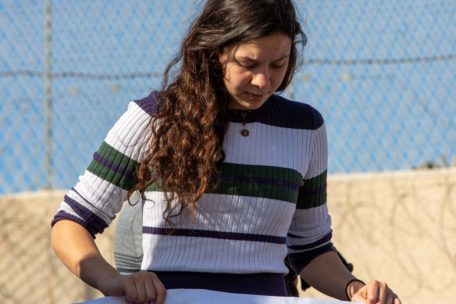
Comme la plupart des Israéliens, la jeune femme âgée de 19 ans est obligée de faire son service militaire et d’agir en faveur d’une occupation du territoire palestinien. Prenant son origine dans l’Holocauste, qui laissa les survivants du peuple juif à la recherche d’un pays qui serait le sien et où on ne viserait pas son extermination, le conflit israélo-palestinien coûte depuis 72 ans la vie à de nombreux innocents.
Les Juifs ont considéré que la fondation de leur propre Etat sur le territoire où leurs ancêtres s’étaient installés 2000 ans auparavant serait le meilleur moyen pour lutter contre l’antisémitisme. Or, la population arabe qui vivait déjà sur ces terres avait également l’intention d’y créer un Etat.
Confrontée à un choix déchirant – celui de soutenir son pays dont elle réprouve la politique ou d’aller en prison si elle refuse de faire son service militaire –, Atalya mène sa propre enquête pour découvrir la vérité et se construire une opinion fondée sur plusieurs points de vue. Persuadée que la violence n’aide pas à résoudre ce dilemme, Atalya décide de refuser son service militaire et n’hésite pas à faire face à un emprisonnement en tant qu’objectrice de conscience.
La réalisatrice Molly Stuart fournit avec son premier long-métrage un aperçu profond dans le quotidien d’Atalya. Pendant 75 minutes, le spectateur peut suivre l’évolution d’Atalya qui s’étend sur plusieurs mois avant son refus jusqu’à la période suivant son arrestation. Puisqu’elle est à l’écoute des deux partis, le film offre un large spectre de témoignages différents. Très authentiques, ces interviews semblent parfois même spontanées: par exemple la scène lors de laquelle le grand-père d’Atalya se prononce sans éprouver le moindre doute pour le service militaire alors qu’il est assis en jogging sur un canapé ou bien au moment où ses parents essaient de la convaincre à table de rejoindre l’armée.
A l’aide de gros plans, le film capture un maximum d’émotions des interviewés. En revanche, le recours à des plans généraux permet de donner une vue d’ensemble très détaillée. Notamment les prises d’un paysage désert ou d’un bâtiment palestinien sur le point d’être effondré par une pelleteuse israélienne intensifient l’atmosphère morose.
Le fait que notre protagoniste soit aussi bien représentée dans des moments de faiblesse que pendant les victoires souligne le caractère sincère de ce documentaire. En effet le public moderne ne s’intéresse guère aux superhéros parfaits. De nos jours, une héroïne comme Atalya, qui se bat même quand les larmes troublent sa vision, est considérée comme un personnage enrichissant.
Cependant la reconstitution d’une scène clé rompt quelque peu la transparence du documentaire. Quoique le passage dans lequel Atalya présente son cas devant le comité des Forces de Défenses israéliennes soit basé sur une transcription, un tel genre de mise en scène offre beaucoup de possibilités d’„ajuster“ au fur et à mesure. Un second écueil concerne la fin du documentaire: doté d’un air plutôt optimiste, le long-métrage se termine assez brusquement sans avoir illustré une solution concrète.
En fin de compte, „Objector“ anime ses spectateurs par son message à la fois engagé et combatif à remettre les pratiques de la politique en question. Ce documentaire ouvre des perspectives uniques sur le conflit israélo-palestinien. Il raconte l’histoire touchante d’une adolescente d’une maturité incroyable qui démontre le potentiel de la génération à venir de forger un monde meilleur. Mis en relation avec la guerre russo-ukrainienne, ce documentaire est d’une actualité choquante et vaut absolument la peine d’être vu par n’importe quelle classe d’âge. (Michèle Feltes)
Tu me ressembles
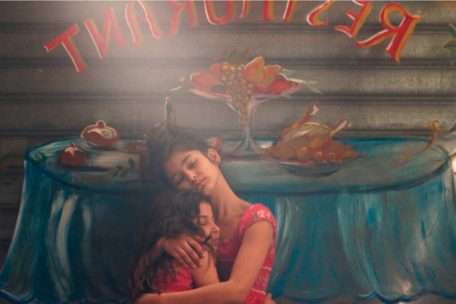
„Tu me ressembles” is a 2021 film directed by Dina Amer and it is based on the life of Hasna Aït Boulahcen, a Muslim woman and the alleged „first female suicide bomber“. If I had to rate the movie on a scale from one to five, five being the highest, I would give it a two.
While the casting was well-chosen and the camera work was quite good, the storyline was hard to follow and confusing. It suddenly jumps from the protagonist’s childhood to her adult life and there is quite a lack of explanation. It is also not quite clear what kind of genre the film is, at the beginning it seems like a drama film, though towards the end it looks more like a documentary. All in all it was a good idea, because it portrays some important issues and discriminatory behavior towards Muslim or Arab people, however the vision was poorly executed. (Jennifer Zoller)

 Zu Demaart
Zu Demaart
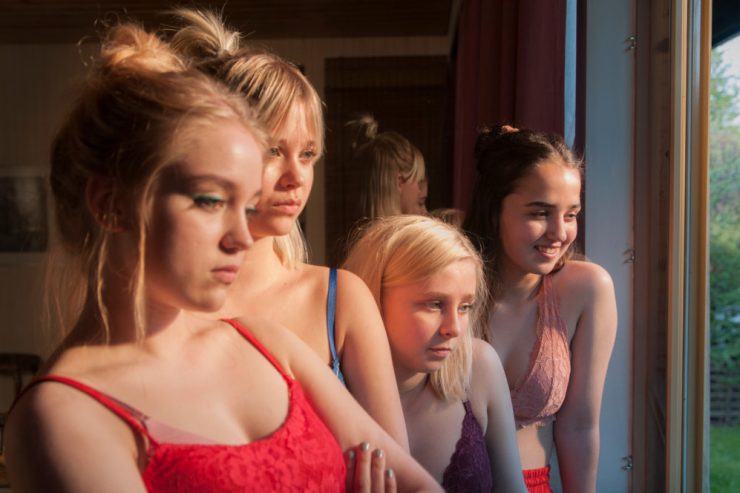

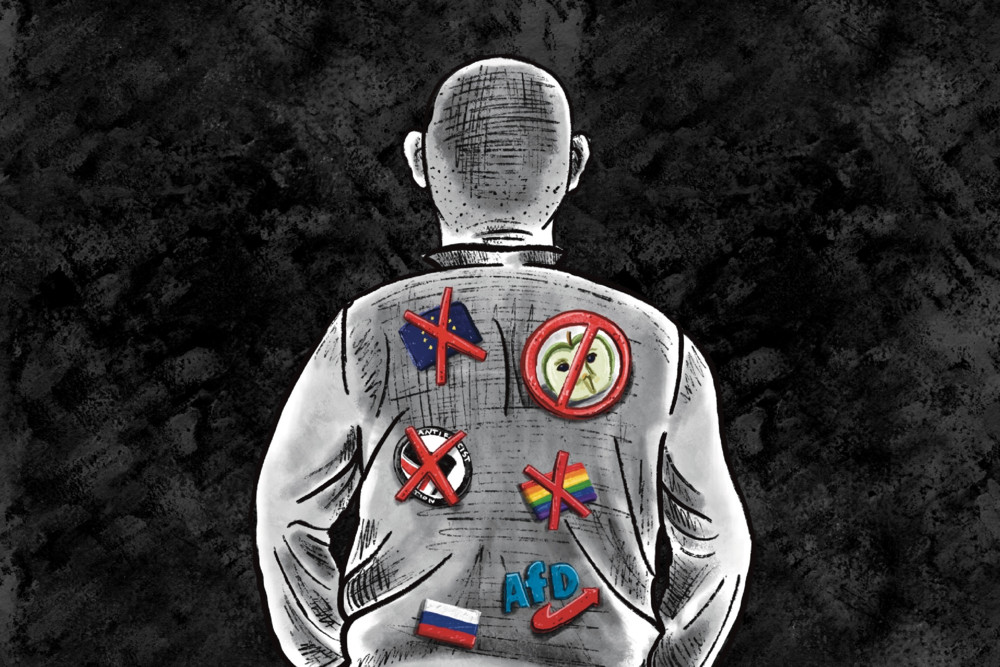

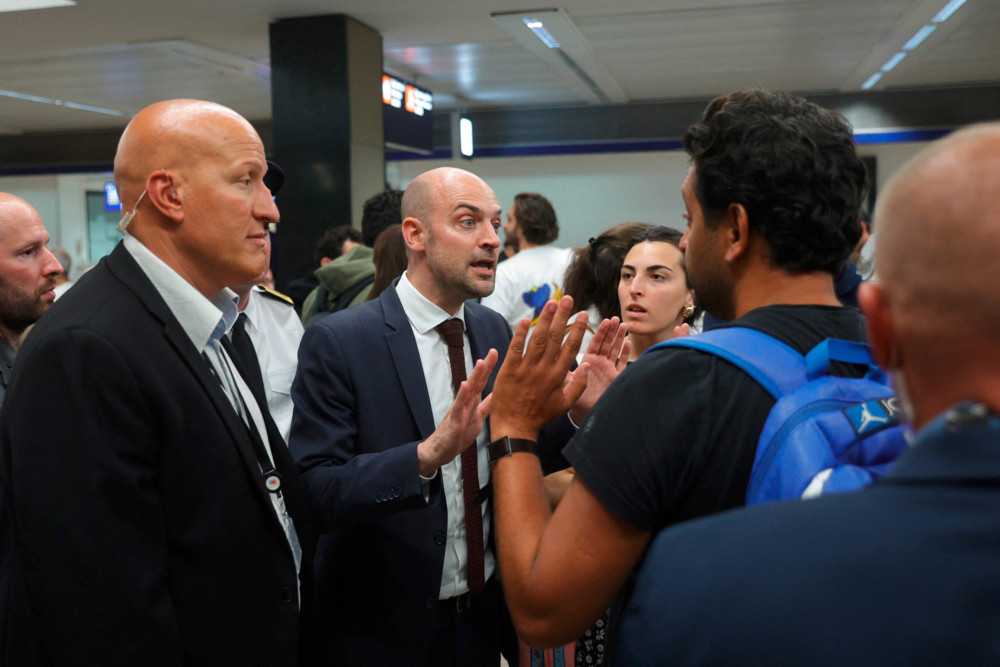
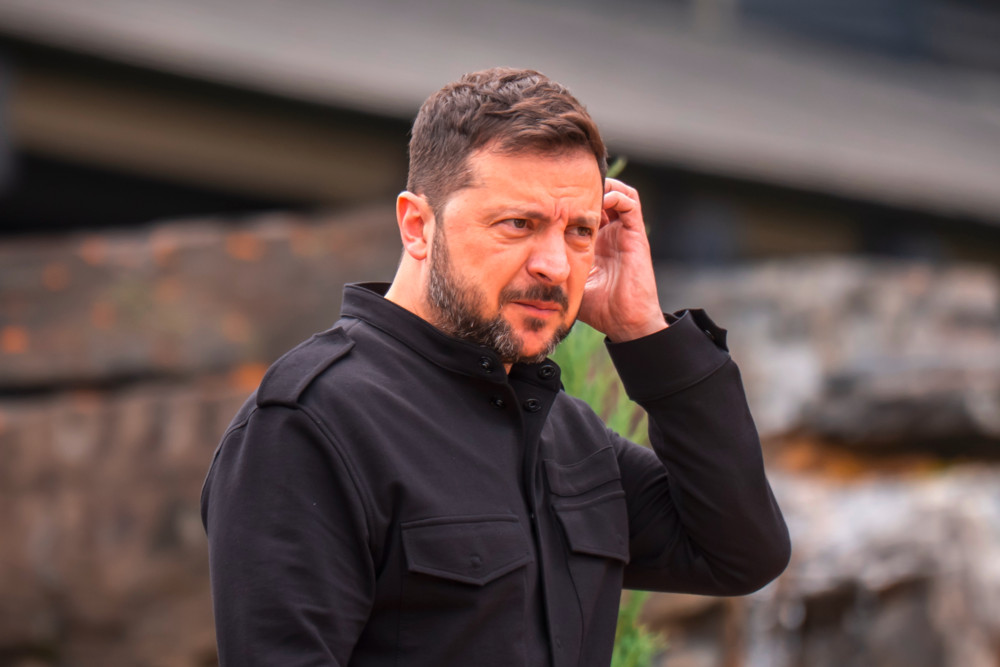

Sie müssen angemeldet sein um kommentieren zu können